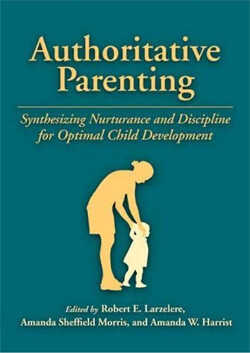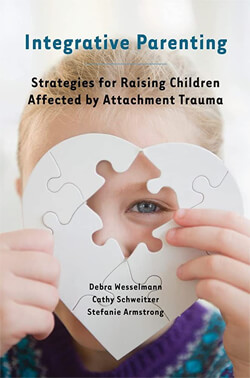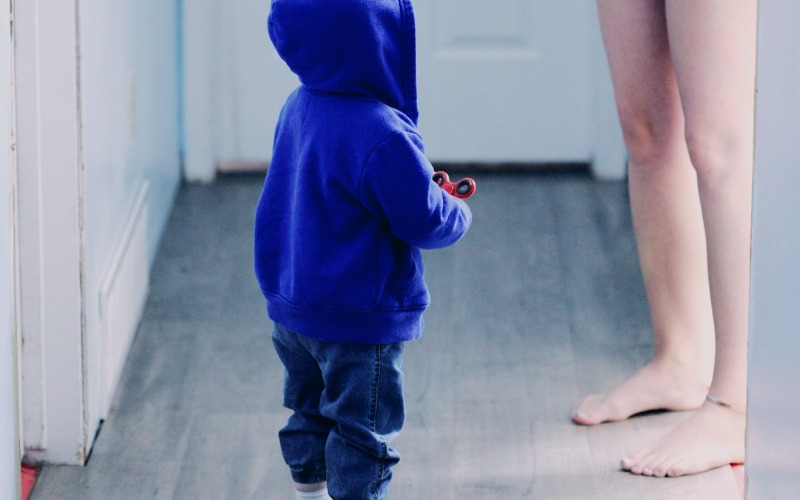Exploring the Different Styles of Parenting
Contents
Parenting styles come in all shapes and sizes, but some general themes run through most approaches. Some parents try to be hands-off with their children, while others are more involved. Some parents emphasize independence, while others believe in a close relationship between parent and child. The goal is to find a parenting style that works best for the individual family.
For parents, there are so many different styles of parenting to choose from. Each style has unique benefits and drawbacks, from the strict disciplinarian to the more relaxed, permissive parent. It is essential to understand the different parenting styles and how they can affect your child’s development.
What are the four types of parenting styles?
There are four commonly recognized parenting styles, each with its characteristics and outcomes. These styles are:
- Authoritarian parenting is characterized by strict rules and expectations with little to no room for negotiation. This parenting style can be beneficial for children who need structure and clear boundaries but can be damaging for children who need more freedom and independence.
- Authoritative parenting is a more balanced approach that combines both structure and flexibility. This parenting style is based on mutual respect and encourages children to think for themselves while providing guidance and support.
- A lack of structure and rules characterizes permissive parenting. While this parenting style can benefit children who need more freedom and independence, it can damage children who need structure and clear boundaries.
- Uninvolved parenting is characterized by a lack of involvement in the child’s life. This parenting style can damage children who need guidance and support.
Parenting styles are changing, and more parents are opting for “radical” approaches that defy traditional norms. We will discuss these ideas and each approach’s potential pros and cons.
Authoritarian parenting has been shown to have adverse effects on children, including increased rates of anxiety and depression. The authoritarian parenting style is characterized by strict rules and expectations that are not based on the child’s needs.
Children raised under this regime often feel like they cannot make mistakes or express their own opinions, leading to a lack of self-confidence and a decreased sense of autonomy.
High demands and low responsiveness characterize this style. In this style, parents are strict and have high expectations for their children. They enforce rules with punishments and do not show a lot of warmth or nurturing. This style can result in obedient and competent children, but they may also be less self-reliant and have lower self-esteem. Authoritarian parents may also be less supportive and caring than other parents, which can create a significant emotional gap between child and parent.
Pros
- Clear structure and boundaries: Children raised under this style know what is expected of them and the consequences if they don’t follow the rules. This can provide a sense of security and stability.
- Discipline: Authoritarian parents are strict with their children and enforce rules consistently, which can help children learn self-discipline and develop good habits.
- Respect for authority: Children raised in an authoritarian environment may learn to respect authority, including the rules and laws of society.
Cons
- Low warmth and responsiveness: Children may feel emotionally distant from their parents and lack a strong bond, which can negatively impact their self-esteem and overall well-being.
- Lack of independence: Children raised in an authoritarian environment may struggle with independence and decision-making skills, as they are not encouraged to think for themselves.
- Rigid expectations: Children may feel pressure to conform to their parent’s expectations and may not have the opportunity to explore their own interests and develop their own individuality.
- Punitive approach to discipline: Children may become fearful of making mistakes and associate obedience with avoiding punishment rather than internalizing positive values and behaviors.
It’s important to remember that every child is unique, and what works well for one family may not work well for another. Additionally, parenting styles can change over time, and what works at one stage of a child’s development may not work as well at another stage.
Authoritative parenting, also known as Democratic parenting, is characterized by high levels of responsiveness and demands. Parents who use this style encourage their children to be independent and self-reliant and set clear rules and expectations for their behavior. They involve their children in decision-making and provide guidance and support when needed. This style is associated with children who have high self-esteem, are competent, and have a strong sense of responsibility.

High demands and high responsiveness characterize this style. Parents who use this style set clear and consistent rules and expectations and show warmth and support towards their children. This style is associated with independent, self-reliant children with high self-esteem.
Pros
- High warmth and responsiveness: Children raised in an authoritative environment may feel a strong emotional bond with their parents, enhancing their self-esteem and overall well-being.
- Independence and self-reliance: Children are encouraged to think for themselves and make decisions, which can foster independence and self-reliance.
- Clear structure and boundaries: Children know what is expected of them and are provided with guidelines to help them develop self-discipline.
- Positive approach to discipline: Children are taught right from wrong and how to internalize positive values and behaviors rather than just avoiding punishment.
Cons
- High expectations: Children may feel pressure to meet their parents’ expectations and struggle with perfectionism.
- Balancing structure and freedom: It can be difficult for parents to strike the right balance between providing structure and allowing freedom for their children to explore and develop their individuality.
- Consistency: Maintaining consistent and supportive parenting practices can be challenging, especially as children grow older and face new challenges.
Permissive Parenting
Permissive parenting is a parenting style that allows for a high degree of autonomy and independence in children. This type of parenting allows children to explore their surroundings and make choices without adult interference. Permissive parents often rely on positive reinforcement to encourage their children’s growth and development.

Pros
- High warmth and responsiveness: Children raised in a permissive environment may feel a strong emotional bond with their parents and have high self-esteem.
- Freedom to explore and develop individuality: Children may have more freedom to explore their interests and develop their individuality, as strict rules and expectations do not bind them.
Cons
- Lack of structure and boundaries: Children may struggle with self-discipline and independence, as they are not provided with clear guidelines for behavior.
- Confusion about rules and expectations: Children may not know what is expected of them and struggle to understand misbehavior’s consequences.
- Difficulty with authority: Children may have difficulty respecting authority and struggle with obedience, as they have not learned to internalize positive values and behaviors.
- Ineffective discipline: Children may not learn from consequences for misbehavior, as permissive parents are unlikely to enforce discipline consistently.
Uninvolved Parenting
One of the most common criticisms of parenting is that parents are too involved in their children’s lives. The assumption is that more involvement equals better parenting, but this isn’t always the case. A study by the University of Missouri found that children who were not directly involved with their parents experienced fewer health problems and were more likely to achieve academic success than closely supervised children.
The study also found that when parents are uninvolved, it can cause tension in the home. Children may feel neglected, leading to problems such as aggression or anxiety. One study found that 60% of kids who reported feeling neglected by their parents had significant issues with emotional stability by age 18.
Low demands and low responsiveness characterize this style. Parents who use this style are emotionally detached from their children and provide little guidance or support. This style is associated with children who have low self-esteem, are less competent, and may have behavioral problems.
Pros
- Independence: Children may develop a sense of independence and self-reliance as they are not constantly monitored or directed by their parents.
Cons
- Low warmth and responsiveness: Children may feel emotionally distant from their parents and lack a strong bond, which can negatively impact their self-esteem and overall well-being.
- Lack of structure and boundaries: Children may struggle with self-discipline and independence, as they are not provided with clear guidelines for behavior.
- Confusion about rules and expectations: Children may not know what is expected of them and struggle to understand the consequences of misbehavior.
- Difficulty with emotional regulation: Children may struggle with emotional regulation and may not have a secure attachment, which can negatively impact their overall well-being.
Integrative Parenting
The Integrative style of parenting is a newer concept that aims to combine the best aspects of different parenting styles into a holistic approach to parenting. This style is characterized by a balance of warmth and control, focusing on fostering independence, autonomy, and self-esteem in children while setting clear rules and boundaries. Integrative parenting is also concerned with creating a positive and supportive home environment where children feel valued and loved.

Research has shown that the integrative parenting style is associated with positive outcomes for children, such as high self-esteem, good social skills, and academic achievement. Additionally, this parenting style is particularly beneficial for children from diverse backgrounds, as it allows for a flexible and culturally sensitive approach to childrearing.
Final Word
Ultimately, the style of parenting you choose will depend on your personal preferences and your child’s needs. It’s important to remember that there is no one-size-fits-all approach to parenting and that each style has its unique benefits and drawbacks. Exploring the different parenting styles can help you find the right balance for your family.
It’s important to note that parenting styles are not set in stone and can change over time and that children can also be influenced by other factors such as peer relationships and cultural values. Additionally, while certain parenting styles have been shown to have specific outcomes, it’s not guaranteed, and every child is unique.
Source
Here are a few academic articles that provide information about parenting styles:
- Baumrind, D. (1967). Childcare practices anteceding three patterns of preschool behavior. Genetic Psychology Monographs, 75(1), 43-88.
This classic article by psychologist Diana Baumrind is one of the first to describe the concept of parenting styles and their impact on child development. Baumrind identifies three main parenting styles: authoritative, authoritarian, and permissive.
- Maccoby, E. E., & Martin, J. A. (1983). Socialization in the context of the family: Parent-child interaction. In P. H. Mussen & E. M. Hetherington (Eds.), Handbook of child psychology: Vol. 4. Socialization, personality, and social development (4th ed., pp. 1-101). New York, NY: John Wiley & Sons.
In this article, psychologists Eleanor Maccoby and John Martin review research on the impact of parenting on child development and describe the different dimensions of parenting, including warmth and control.
- Darling, N., & Steinberg, L. (1993). Parenting style as context: An integrative model. Psychological Bulletin, 113(3), 487-496.
In this article, psychologists Nancy Darling and Laurence Steinberg propose an integrative model of parenting that considers parenting style as a context for child development. They argue that parenting style can shape the broader context in which children develop, influencing outcomes such as academic achievement, social competence, and psychological well-being.
- Baumrind, D. (1991). The influence of parenting style on adolescent competence and substance use. Journal of Early Adolescence, 11(1), 56-95.
In this article, Diana Baumrind reviews research on the impact of parenting style on adolescent development, focusing on outcomes such as competence and substance use. She argues that authoritative parenting is associated with positive outcomes, while authoritarian and permissive parenting is associated with adverse outcomes.




